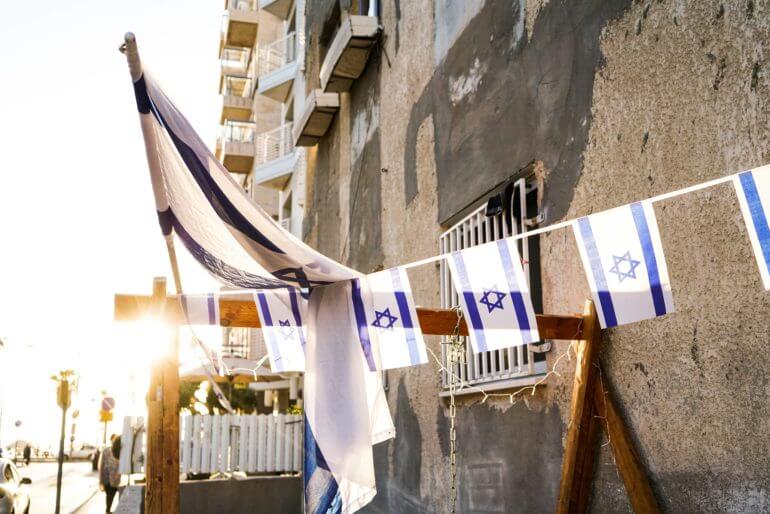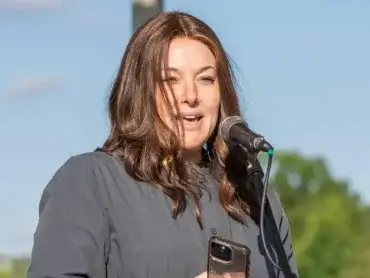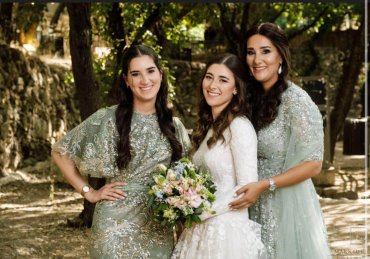
I Made Aliyah In The Middle Of A War: This is Why Israel Is My Home
I often walked my dog at unconventional times my senior year of high school. Sometimes after a long night of school work, I would only get out at around 1:30 AM. Somehow, without fail, my Hispanic neighbor from up the block would walk her dog Rosalina on a similar schedule. Despite the late hour, the forty-year age gap, and the fact that I don’t speak Spanish, we often found ourselves in deep discussion. One night, it came up that my older sister had made Aliya (moved to Israel) two years before. I explained how she went for a seminary gap year and decided to stay. How, she asked, was my sister able to be without our family, her house? I didn’t fully get the question. “She misses us a lot, but she’s home,” I explained. My neighbor told me how she hadn’t been to her country of origin in decades and how she could never imagine living there again. It just didn’t feel like she belonged there anymore. America was her home now. This was where she had raised her kids, where her parents had been buried.
I told her that I planned on doing the same thing when I went to seminary the next year (while we both attempted to unravel our dogs’ intertwined leashes). I tried to assuage her shock as I described that my connection to Israel is larger than my own life because of its spiritual significance to my people. It’s been my home since before I was born and will be my home long after I’m not there to live in it any more.
In the winter, I would often walk our dog in my dad’s oversized slippers, my mom’s decade old ski coat and my brother’s Eagles winter pom-pom hat; all items that I could conveniently grab from our hall closet before going outside. I think my neighbor thought I was a little insane for a couple of reasons.
A few weeks before I left for seminary I felt frustrated. I felt like I just wanted to be in Israel already, but I couldn’t quite verbalize why it was so important for me to be there. To try to understand what I was feeling, I casually wrote on my notes app that Israel feels “like a force of gravity that pulls everyone you love into” while getting a snack from the pantry. How when everyone inevitably comes back “we get to hold each other and feel at home in each other.” I was kind of confused as I looked down at what I had written. I knew that I saw Israel as a religious homeland, and that I loved visiting my cousins there for Pesach and smachot (celebrations), but I had never really experienced Israel in the way that I had just described it.
Obviously no one anticipated a war. For the first pre-war month of seminary I was on a constant high. Meeting interesting new people, learning from brilliant teachers, touring in between. I was ecstatic for my upcoming Aliya. I felt very grateful to be in such a powerful and exciting place.
But, when the war broke out, I started to feel differently. It’s painful to be here now. It hurts countlessly and constantly and consumingly. There are days when I’m scared to walk around outside. Yet, simultaneously, I feel a depth with my people and with my land that I’ve never felt in my life. I’ve never felt so much what it means to be a Jew.
The first week of the war we couldn’t go back to our seminary after Yom Tov because our guards were called for reserves. One of our teachers instantly offered for us to sleep in her basement until however long we needed. All her neighbors offered to host any girls that didn’t fit. It wasn’t their responsibility to take us in and it wasn’t our place to take over their houses. But they made it their responsibility and the families allowed us to make their homes our homes. To be a Jew means to take responsibility for the pain of those around you, even when it really isn’t your responsibility at all.
That first week, if we stopped leaning on each other we might have collapsed. One of the first nights after October 7th, we got an alert that terrorists had broken into our seminary. Although we were still at our teacher’s house, some of our faculty that live on campus were hiding under furniture in dark and locked rooms. All of us sat on our teacher’s couches wailing, holding each other tightly. We all took turns comforting the person next to us when she started to cry, until you had to stop because it was your turn to get hugged. Thank G-d, after around an hour we learned that the whole thing turned out to be a false alarm. But, the love and safety that I felt in my friends’ arms was so real.
Every week for the first few months of the war we went to babysit for families whose fathers were called for reserves. I was so scared at the beginning. There was no way to ever know what I was going to walk in on. What I did know, though, was my inability to fill such fresh, deep, gaping holes. I started going to the same family every week. They didn’t speak English and my Hebrew isn’t great. But, it didn’t really matter so much because I know how to tickle six-year-olds until they squeal, kick a soccer ball in a dark, buggy backyard, and give piggyback rides until my arms hurt.
One Tuesday I told the mom of the family I had been going to that I was going to be flying home for my brother’s bar mitzvah that week. She couldn’t stop asking about my family and how excited I must be to see them. Her own husband left at the beginning of the war and they hadn’t seen him since, but the few months that I hadn’t seen my family in America was somehow a bigger deal. When I left at the end of the evening she excitedly handed me a couple fresh rolls that she had just baked. “For your flight!” she explained, as if it was her job to supply me with an on-flight meal. I closed their front door behind me and just stood there. I started bawling uncontrollably. Even when my mom isn’t here to feed me, I’m never hungry. My nation makes sure of it.
A couple days ago, a sister of one of the teacher’s in my seminary came in to speak to us. Her son was a soldier in Gaza and was killed recently. She started the speech by showing her son’s bar mitzvah montage; beautiful baby pictures, silly cousins photos, him in uniform from before he was killed. She explained how after the shiva all she wanted to do was organize her house: arrange the pillows on her couches, put dishes away. But, the only thing that she wasn’t able to put in its proper place was her heart. I learned the difference between sadness and pain after she distinguished the two for us. Sadness lessens over time. Pain is always there, it’s always a little below the surface. A person can feel both happiness and pain in the same instant. She ended by sharing a thought she had shortly after hearing the news. She told Hashem that if He arranged this event, He also must be the one to give her strength. I don’t want to have to learn how to be resilient, how to live with pain. But our nation is in pain right now, and in some ways, it has been for thousands of years. In Israel, the language exists for how to keep going.
I came across a couple of Pesukim in night seder recently that felt like they were speaking directly to me and I haven’t been able to stop thinking about them since. In Yeshayahu 49:14-15, The End of Days are described:
וַתֹּ֥אמֶר צִיּ֖וֹן עֲזָבַ֣נִי יְהֹוָ֑ה וַאדֹנָ֖י שְׁכֵחָֽנִי׃ הֲתִשְׁכַּ֤ח אִשָּׁה֙ עוּלָ֔הּ מֵרַחֵ֖ם בֶּן־בִּטְנָ֑הּ גַּם־אֵ֣לֶּה תִשְׁכַּ֔חְנָה וְאָנֹכִ֖י לֹ֥א אֶשְׁכָּחֵֽךְ׃
Zion says, “G-d has forsaken me, my Sovereign has forgotten me.” Can a woman forget her baby, or disown the child of her womb? Though she might forget, I never could forget you.
It’s really hard to feel G-d’s goodness this year. The pain that was created here sometimes sits like a thick, dark fog. Making Aliya last week wasn’t all fun. I am so excited to live here, but I also know the new potential for pain in my future. Above all else, I know that the potential for unity and wholeness with my people feels so much bigger than that. I don’t have the right to exempt myself from the pain of my people by not living here. I want to hold some of our pain. I want to fully experience our collective happiness that will return again after our sadness begins to wane.
Hashem has not forsaken His people. He takes more responsibility for us than a mother does for her own child. I hope to be able to emulate G-d in some way by living here. When I go back to America in the summer I hope that I bump into my neighbor when we walk our dogs again. I can’t wait to hear about her kids and how the neighborhood’s been since last summer. I also hope that she asks me if I decided to stay in Israel. And when I say yes, I’ll know exactly why.
If you found this content meaningful and want to help further our mission through our Keter, Makom, and Tikun branches, please consider becoming a Change Maker today.







